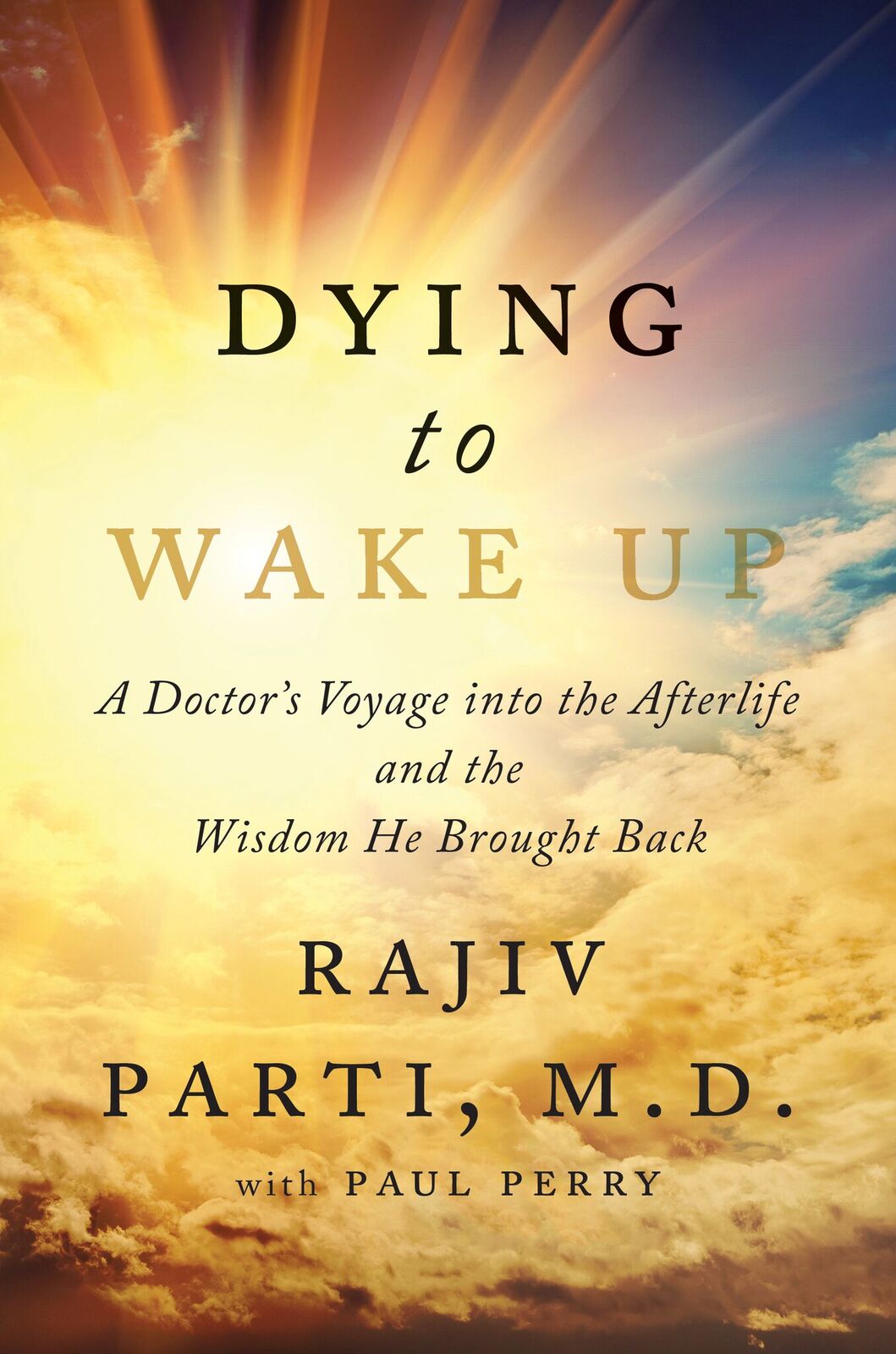
Near-death experiences are extraordinary. The idea of leaving one’s body at the point of death, traveling to a heavenly realm and seeing beloved relatives who have passed is truly a hero’s journey.
I have written a dozen books on the subject, and I am constantly in contact with near-death experience researchers as well as those who have had the experience. Their stories may eventually answer mankind’s greatest question: What happens when we die?
Which brings us to Dr. Rajiv Parti, former chief of anesthesiology at Bakersfield Heart Hospital. His is most likely the best near-death experience I have ever heard, not just for the experience itself, but for the transformation it led to.
In 2008 Dr. Parti was Chief of Anesthesiology at Bakersfield Heart Hospital in California. He derived his identity and happiness from the incredible wealth and prestige his job gave him. He lived in a mansion, had several luxury cars and was able to purchase most any material goods he wanted.
For some reason this made him feel invincible.
In August of that year everything changed. He was diagnosed with prostate cancer. A routine surgery eradicated the cancer, but led to complications that left him incontinent and in excruciating pain. He was prescribed pain meds that he soon became addicted to, and within time he was diagnosed with depression, too.
On Dec. 14, 2010, he went to UCLA Medical Center for the surgical placement of an artificial urinary sphincter. In the days after this surgery he began running a fever of 104 to 105 degrees. Heavy antibiotics were prescribed, but he was not getting better.
On Christmas Eve 2010, Dr. Parti underwent emergency surgery to drain the pelvic region of infection and remove the artificial sphincter.
It was here, dying and heavily anesthetized, that he “woke up.”
Although deeply asleep from anesthesia, he was very aware that his consciousness had separated from his body. From a vantage point near the ceiling he said he could see the surgeon cut him, and then all of the operating room personnel react as the odor of the pus from his infected abdomen seeped throughout the room. He saw a nurse apply eucalyptus-scented water to everyone’s surgical masks. He even heard the anesthesiologist tell a joke so dirty that he blushed when he later told it to the anesthesiologist in the recovery room.
Dr. Parti then left the operating room and began to drift toward familiar voices in India, where he could hear his mother and sister talking about dinner preparations, deciding on rice, vegetables, yogurt and legumes. He could see they were bundled up to protect themselves from the foggy, frigid air that night. A small electric heater glowed, helping to take the chill out of the room.
Dr. Parti became euphoric. “People are never far away,” he thought. He said he had the sense of his presence spreading around the world, a feeling of oneness with the world and everyone in it.
Then fear overcame him when his awareness drifted to a place where a great, wild fire was raging. He could see lightning in dark clouds and smell the odor of burning meat. He said he realized that an unseen force was pulling him into Hell, leaving him “in the midst of souls who were screaming and suffering.”
“What is my Karma,” he wondered. “What did I do in my life or past life to deserve this punishment?”
In the middle of this horror, Dr. Parti began to have the strong awareness that the life he was living was very materialistic. His life was always about him. So much so, in fact, that when he met new people Dr. Parti asked himself: “What can I get from this person?”
The truth dawned on him there in Hell: the life he was living on earth was without love. He was not practicing compassion or forgiveness toward himself or others. He also had an unsavory tendency to be harsh toward people he perceived to be lower than him in status. He felt deeply sorry for his lack of kindness, wishing he could have done certain things in his life differently. As soon as he had that realization, Hell faded away.
Transcendence and transformation are what interest me most in near-death experiences. In my research, I rarely meet a person who hasn’t been transformed by their experience. These people become kinder, gentler versions of the person they were before. Sometimes this change is so complete that they are no longer recognizable. That was the case with Dr. Parti. His brush with death opened an entirely new world to him—an otherworld if you will—that replaced the materialistic world he had so carefully constructed.
Dr. Parti was literally transformed by the light.
More Must-Reads From TIME
- The 100 Most Influential People of 2024
- The Revolution of Yulia Navalnaya
- 6 Compliments That Land Every Time
- What's the Deal With the Bitcoin Halving?
- If You're Dating Right Now , You're Brave: Column
- The AI That Could Heal a Divided Internet
- Fallout Is a Brilliant Model for the Future of Video Game Adaptations
- Want Weekly Recs on What to Watch, Read, and More? Sign Up for Worth Your Time
Contact us at letters@time.com